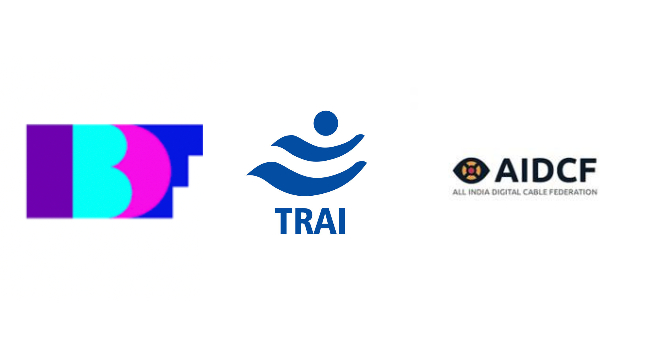The Indian broadcasters and content distribution platforms (represented through AIDCF) seem to have positioned themselves on opposite sides of the media ownership spectrum with the latter suggesting formation of another advisory body to coordinate with the antitrust body CCI, amongst other things. The TV channels have argued against any regulations as adequate checks and balances already exist.
The Indian Broadcasting and Digital Foundation (IBDF), an industry association of broadcasters, has said that sector regulator TRAI would be overreaching itself trying to explore cross media restrictions as adequate plurality for consumers, along with checks and balances, presently exist in a technologically converged arena.
In its submission to the Telecom Regulatory Authority of India (TRAI) consultation on ‘Issues Relating to Media Ownership’, the IBDF has said with multiple technological methods developing to disseminate information and consumption by consumers, there remains no domination in any given market based on market share in a given geography.
“There is no reasonable basis, therefore, to bring in any kind of cross media restrictions,” it has argued, pointing out convergence, Internet and mobile telephony bring any and every newspaper, TV and radio channel on a single screen, thus making the very concept of specific media markets or geographies “irrelevant”.
While making an elaborate case for not having any cross media ownership restrictions, backed by data and published market reports, the IBDF has “respectfully submitted” that the present exercise (where statutory recommendations have been sought and are contemplated to be provided by TRAI) ought to have been “restricted” only to matters — broadcasting services — that fall within the purview of TRAI’s remit that has been granted by the Indian parliament.
The IBDF has said a multitude of players in the market means no one has a monopoly, while operation of principles of free market economy ensure that even small players can compete.
It has argued a free market is one where there is “voluntary exchange” of goods and services without interference with the “prices” that are determined by the forces of demand and supply.
In other words, decisions regarding investment, production and distribution/sale of goods and services are guided by market determined price signals without any government interventions or restrictions on investment, freedom to contract and price controls.
Pointing out that in an earlier instance TRAI — in the explanatory memorandum to the Telecommunication (Broadcasting and Cable) Services Interconnection (Addressable Systems) Regulations, 2017 (Interconnect Regulations) — had acknowledged ‘the channel carrying capacity of a DPO (or a distribution operation platform operator) should be left to market forces and… therefore has not been regulated’, IBDF has sought parity of the same thought-process by stating, “Similar principles are also applicable to media ownership.”
The broadcasters’ body has highlighted several pre-emptive checks and balances already exist in the current legal framework of the country vis-à-vis media ownership issues.
These existing checks and balances include regulations on FDI, the Cable TV Networks Regulations Act, the Companies Act, etc., along with monitoring organisations like the antitrust body CCI, markets regulator SEBI for listed media entities, DPIIT for foreign investment in media entities, and the Ministries of Information and Broadcasting, and Electronics and IT for sector specific laws governing media entities. Then there are bodies like the Press Council of India, mandated to preserve the freedom of the press and to maintain and improve the standards of newspapers and news agencies in India.
In fact, IBDF has argued, in the changed landscape the government should “consider deregulation of some of the existing checks and balances” like removal of the cross-media restrictions imposed via DTH and HITS license conditions and the applicable FDI restrictions.
To a question on appropriateness of restrictions on cross media ownership in one or more type of media segment based on mere presence of an entity in any segment in a relevant market, the IBDF said, “As consumer consumes content across different media, putting restrictions based on mere presence is detrimental to reach and monetization of content produced by a media company, as well as deprives consumers of content on their media of choice – hence cross-media presence should not be restricted in any manner.”
Resting its case against any media ownership restrictions, the IBDF concluded: “Today’s extraordinarily vast and exceptionally diverse media provides for more than enough competition to ensure that the government’s policy objective of viewpoint plurality is met. The Indian media marketplace is so ferociously competitive and extra-ordinarily diverse that the objective of promoting viewpoint plurality is being automatically satisfied and hence any further restrictions may damage the equilibrium of growth and diversity that the industry has been successfully maintaining.
“With multiple technological methods developing to disseminate information and consumption by consumers, there remains no virtual demarcation of a single medium. It is also not possible for a single entity to dominate any given market based on market share in a given geography within a media segment.”
AIDCF Pushes for Cross Media Limitation: However, another industry body that represents the MSOs, the All India Digital Cable Federation (AIDCF), has openly advocated for cross media limitations of content availability, and bringing OTT platforms and public broadcaster’s free DTH service, DD FreeDish, under regulations that govern other distribution platforms (DPOs) too.
“We suggest that in order to ensure that consumers have access to diversified views, opinions and information, the cross-media control of individual horizontal segment (i.e. broadcasting services, print, radio and digital) as have been identified under the CP (consultation paper) should be restricted to a maximum number of two verticals each in both ‘user based’ and ‘consumer-based’ interfaces,” AIDCF suggested.
It added that allowing the OTT platforms and FreeDish to exhibit and transmit the same services (in addition to other diverse content on OTT platforms) without subjecting them to any licensing and regulatory conditions, unlike the DPOs, is clearly “arbitrary” and devoid of the interests of the consumers as well as the distributors like the MSOs.
“We, therefore, urge that before formulating any rules with respect to cross-media ownership, the Authority should forthwith intervene and look into the aforesaid issues and formulate a licensing framework for OTT platforms, extend the purview of the applicable regulatory framework to the OTT players and FreeDish,” AIDCF submitted, adding broadcasters who were flouting the fineprint of guidelines should be penalised.
Propagating adoption of limited restrictions, which AIDCF backed with arguments and examples, it said such an arrangement will also “allow an economically well- placed media entity to invest in other segments and vice versa, thereby balancing the interests of all stakeholders”.
It also advocated against restricting companies from making investments in other media segments as it likely would “affect their growth and hinder expansion of business”, which are vital for the prosperity of the media industry.
“However, in order to ensure a level playing field for all participants in a given media sector, it is imperative that specific and strict measures are put into place, in absence of which certain horizontally/vertically integrated groups/entities can dominate the market and render it non-competitive, thus leaving the industry in bad health,” it submitted.
“The Authority should allow vertical and horizontal integration but ensure that stringent rules and regulations are effectively put in place to safeguard and ensure the above-mentioned guidelines for fair play amongst players and there exists no opportunity for vertically/horizontally integrated groups to treat other constituents in an unfair manner using the advantage they hold in the segment,” AIDCF argued.
On the issue of TV channels’ price cap, the MSOs’ body reiterated its stated position on the issue, saying it supports TRAI move to cap a channel price at Rs. 12 for inclusion in a bouquet.
Pointing out that popular TV channels do not require any push by inclusion in a bouquet and will always have an uptake despite it being priced above Rs. 12, AIDCF said that to ensure that such “popular/premium channels are not unnecessarily clubbed with unpopular channels, a price range/band(s) should also be introduced and adhered to for inclusion of channels in a bouquet”.
Interestingly, AIDCF has suggested that in order to have a comprehensive overview of any synergies/convergence that is proposed with respect to the media segment, a separate media advisory body should be set up.
This advisory body, according to the MSO’s trade outfit, could be an “expert body having adequate representation from each of the horizontal segment of media domain” with its responsibilities being engaging with the antitrust organisation Competition Commission of India (CCI) on the issue of any proposed horizontal/vertical integrations that are likely to take place through acquisitions, mergers and amalgamations
“The composition and role of such media advisory body can be duly consulted through a separate consultation process. All significant issues with respect to cross-media holdings should be first referred to the said media advisory body and then the final adjudication by CCI must take into consideration the opinion/concerns that are raised by the said advisory body,” AIDCF suggested, exhorting the government to get this advisory panel in place as soon as possible.
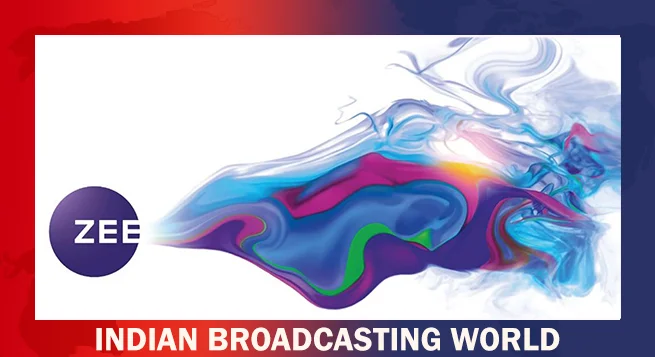 Zee posts Q4 profit of $ 1.6 mn; domestic advertising up 11%
Zee posts Q4 profit of $ 1.6 mn; domestic advertising up 11% 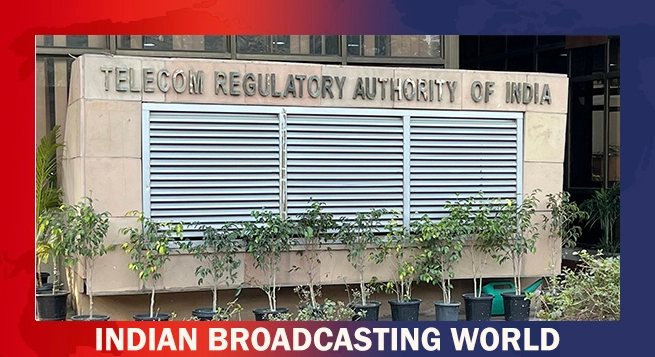 TRAI gives 7 days for additional submissions on b’cast policy
TRAI gives 7 days for additional submissions on b’cast policy  Prasar Bharati to launch family-oriented OTT Platform
Prasar Bharati to launch family-oriented OTT Platform 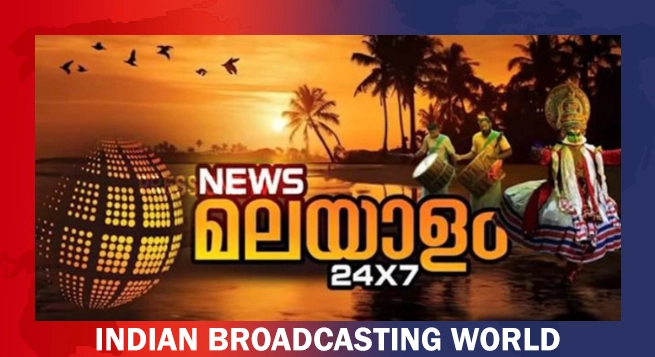 News Malayalam 24×7’ to launch on May 29
News Malayalam 24×7’ to launch on May 29  ‘Prasanna Vadhanam’ to Premiere on aha
‘Prasanna Vadhanam’ to Premiere on aha 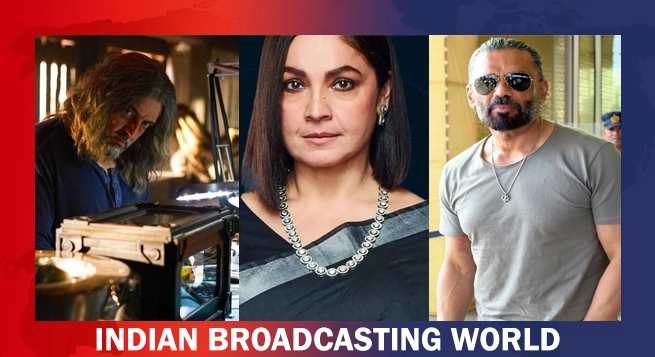 Jugal Hansraj joins Suniel Shetty, Pooja Bhatt in Lionsgate India’s untitled project
Jugal Hansraj joins Suniel Shetty, Pooja Bhatt in Lionsgate India’s untitled project  TRAI to announce regulations for communication apps soon
TRAI to announce regulations for communication apps soon  Zee Telugu celebrates 19th anniversary with Zee Mahotsavam 2024
Zee Telugu celebrates 19th anniversary with Zee Mahotsavam 2024 

